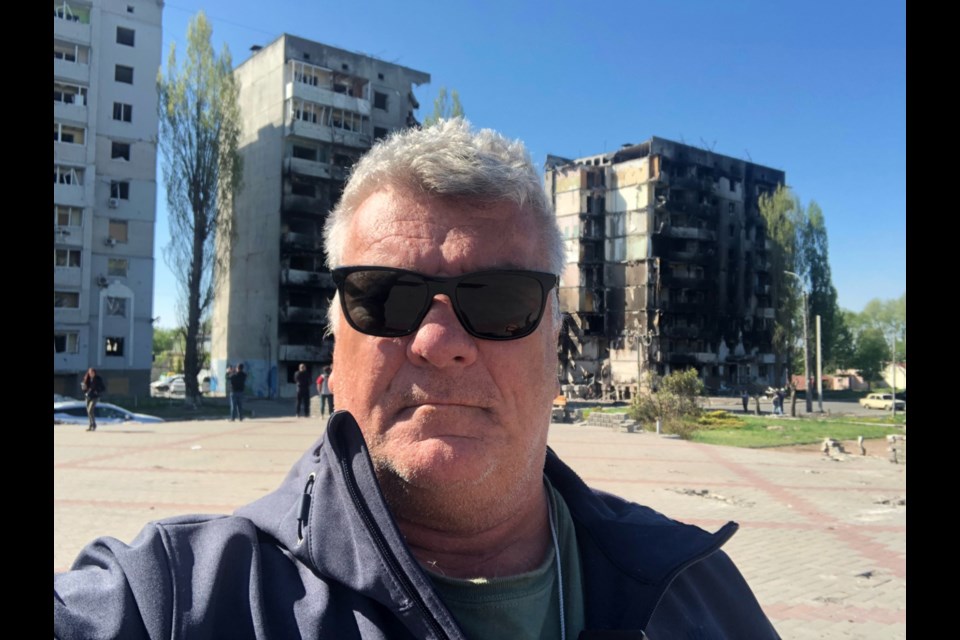The Sault’s Robert Peace returned home on Thursday from a humanitarian mission to help civilians affected by the war in Ukraine.
He had been in several locations in Romania since April 18, travelling daily into Ukraine to help women and children escape to safe places for refugees in Romania while also delivering aid by rental car to other Ukrainian civilians inside the war torn country itself.
“We were based at three border points in Romania. Most nights we would sleep in Romania but some nights we stayed in Ukraine because we were too far in,” said Peace, who worked closely with Diana Nistor, a Spanish woman with European non-profit group ADE to deliver humanitarian aid.
“We were finding towns in Romania of 10,000 or 15,000 people that suddenly had 5,000 to 10,000 refugees appearing on their doorstep. It would be like the Sault suddenly having to welcome thousands of new people tomorrow. How do you accommodate them?”
“A group I was working with was placing them in homes of people who agreed to take them in, but there’s a totally different language and you don’t know how the chemistry will be with the family you’re staying with and you’ve probably left a husband or father back in Ukraine to fight a war. There were lots of people understandably not wanting to leave Ukraine but having to get away from where the fighting is.”
As a result, Peace and his fellow aid workers made many trips into Ukraine.
“We would have medical aid and food from France, from example, and we would deliver it.”
Peace said he had never witnessed such misery in person.
“Where places had been occupied in Ukraine, there were tanks with burnt people inside, you could see the bullet holes and the shrapnel, people were still living in some of the ruins. There was trench warfare. There were apartment blocks 15 storeys tall, all with the windows blown out, shell holes in them and people still living in some of the units.”
“When you went into a town or city everything had to happen pretty fast and coordinated. There were military people involved, a guide who’s bringing you in, there were amazing volunteers unloading things, Ukrainian women cooking food. That part of it was pretty positive.”
“Then there are other times when you’re sitting with refugees who could speak English and are willing to speak about their experiences. There was exhaustion and speaking about the need to get out, away from the bombardment, their relief about getting out, then the emotions came out more. They were wondering ‘are we ever going to go back, is my husband alive, will my kids ever see their friends again?’ We didn’t withdraw but had group hugs, cried together, laughed together.”
“Those families that I got to know have really been in our hearts and minds.”
Peace and a group of about 40 fellow aid workers met briefly with Ukrainian President Volodymyr Zelenskyy, though the group had to be blindfolded to and from the meeting. The Ukrainian authorities kept the leader’s whereabouts a secret for security reasons.
Peace said he will stay in touch with families he met that have resettled in Romania and Spain.
Now home, Peace said he wants to make arrangements to bring Ukrainian woman Lesya Horova and her daughters - all singers - to the Sault for a performance at the Algoma Conservatory of Music as well as organizing events with St. Mary’s Ukrainian Catholic Church.
For now, Peace told SooToday he wants to get straight back to work in his role as Rolling Pictures community relations director for the film company’s Sault Ste. Marie operations.
“It’s probably best to keep busy and not sit and think about too many of those things. Part of me still wants to be there,” Peace said, reflecting on the refugees he met and the camaraderie he built with his fellow aid workers.
